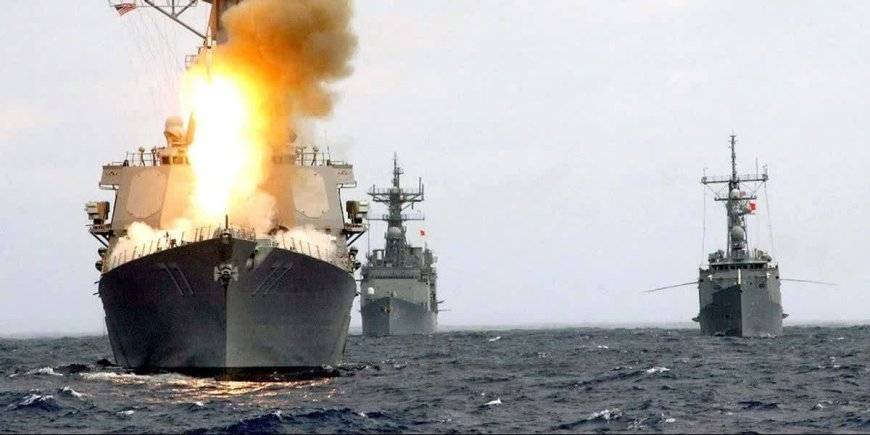Can the EU's naval deployment to the Red Sea spark a global confrontation?
In an ominous move, the European Union (EU) has recently made an exceedingly dangerous decision to deploy three warships to the Red Sea with the purported objective of safeguarding its interests.

The Red Sea, a vital waterway fraught with geopolitical complexities, has been a focal point of the brewing global conflict following the Israeli war on Gaza, as Yemen's Ansarullah movement, extending its support to the Palestinian civilians in the besieged Gaza Strip, declared its intention to target any vessel destined for Israeli ports traversing the Red Sea. According to observers, Ansarullah’s sea blockade has so far exacted a hefty toll on Israel's economy. In response, the United States, in alliance with the United Kingdom, undertook strikes against Yemen to protect the Israeli ships.
However, the US-UK joint offensive against the Yemeni army proved unsuccessful, leading Washington to expand its military intervention across the Middle East. This precarious scenario has the potential to serve as a catalyst for rising regional tensions, which could turn the Red Sea literally into a sea of blood, as Turkish President Erdogan has recently stated.
Meanwhile, the Israeli war on Gaza has left the European Union with a geopolitical conundrum over its maritime exports through the Red Sea. On one hand, the mounting risks associated with shipping goods through this region; on the other hand, alternative routes, while longer and less hazardous, fail to offer a long-term solution. As a result of the existing state of affairs in the Red Sea, countries like the Netherlands and Germany have seen severe economic losses. In this regard, the deployment of three warships to the Red Sea by EU members, as noted by many analysts, can potentially spark a global confrontation.
At the same time, the United States seems to have sought European collaboration in its efforts against the Yemenis, yet European countries, driven by their own military and political agendas, have rejected Washington's proposals. Despite this, it remains probable that the EU will ultimately find common ground with the United States.
In this bleak landscape, Spain's resolute stance, rejecting cooperation with the United States, stands salient. Pedro Sánchez, the Spanish Prime Minister, has emphatically declared that his country will employ its veto power to obstruct any proposal for collaboration with the United States against Yemen. Madrid argues that such a military partnership would escalate the already-growing tensions in the region, diverting the EU from its primary objectives. Taking cues from this position, both France and Germany have expressed a desire to cooperate only within a European military framework.
The emerging disagreements among EU member states on how to address the challenges in the Red Sea render Europe incapable of adopting a decisive stance on this matter. This lack of consensus among EU member states presents an additional challenge for the Europeans: how can they effectively provide an adequate number of military personnel and weapons for this dangerous maritime mission? The key lies in securing unanimous approval from all member states, a goal that remains elusive.
The EU must understand that the security dilemma in the Red Sea is inexorably intertwined with the conflict in Gaza. Therefore, rather than taking on pointless military expeditions that blow up the region's powder keg, the EU must assume a more active diplomatic role. Any delay in formulating a comprehensive strategy to solve the plight of Palestinians will only serve to exacerbate an already precarious situation.
At this critical juncture, time is an invaluable commodity. The European Union must not falter in its pursuit of a destructive strategy, lest it find itself confronted with the unenviable choice between the lesser of two evils. The ramifications of deploying warships to the volatile waters of the Middle East could prove catastrophic, undermining the very fabric of European unity.
In conclusion, the EU's dispatch of a naval fleet to the Red Sea amplifies regional tensions. The Red Sea, entangled in global conflicts and linked to the situation in Gaza, poses a complex challenge. Instead of escalating the situation, the EU must prioritize diplomacy over military action to address the Palestinian crisis. Timely strategic decisions are crucial to avoid catastrophic implications and uphold European unity.













































